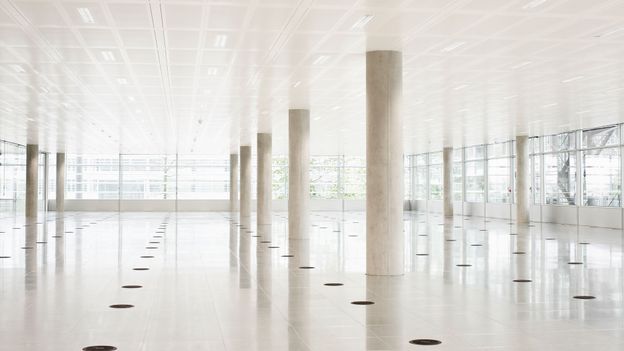As more employees work from home in the hybrid-work era, many companies are finding they need smaller offices. Compared to pre-pandemic floorplans designed to house as many workers as possible, more businesses are looking towards more compact but higher-quality spaces for the future.
According to figures from global commercial real estate firm JLL, 48% of clients in major markets, including the UK, Germany and France are seeking to decrease their footprints in the next three to five years as a result. “Our clients are working out what to do with the space they’ve got by analysing data from recent years to come up with long-term plans,” says Stephanie Hyde, CEO UK and CEO EMEA Markets at JLL. “In addition, many leases are expiring, companies are pressing ahead to meet sustainability agendas and they’re focusing on getting hybrid working right.”
This imminent corporate downsizing is set to have huge ramifications for the real estate industry. As more leases end, experts anticipate a tidal wave of available commercial space on the market. According to March 2024 data from workplace research firm Leesman, total space reductions could reach 40% across its global client base of 766 firms. Projected onto central London, if the same proportion of the city’s occupiers opt to reduce their footprints, this corporate downsize would be the equivalent to 56.6 million sq ft (5.26 million sq m) of office space.



Ah yes, the market. Known for it’s agile flexibilty so that it can adjust to demand at will and efficiently. I’m sure this will turn out well for everyone. By which I mean the peasants will be forced to commute to keep the status quo or they’ll lose their house while governments bail out the class that took on the risk for this real estate.
I think the cat’s out of the bag at this point… There are and will be attempts to reverse the trend by sheer executive will, but it isn’t going to be enough to save the overall commercial real estate market globally.
I don’t know enough about how things are linked together, but I suspect that will have an impact on home prices as well when it happens
My cynical attitude says commercial real estate corporations will probably try to pivot to residential real estate and gouge us all when corporate real estate doesn’t pan out.
TRY to pivot? They already have, that started years ago
I would love to see some hard data on this, but I wonder how much of the increase in corporate purchases of homes is driven by the need to prop up their flagging real estate investments.
The reason prices aren’t dropping with lower demand is that all this shit belongs to hedgefonds, private equity firms and the like. Those fucks are usually leveraged to the hilt, i.e. they cannot cope with even a small correction. That’s why they hold on to high rents at all costs and would rather see a huge increase in vacancies than a drop in rent. That can go on only for so long, until the pressure becomes too great and we’ll have 2008 all over again.